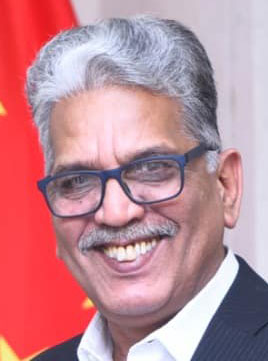In the heart of the breathtaking mountainous terrain of Gilgit-Baltistan, a region in Pakistan, winter unleashes its fierce grip, subjecting the town of Gilgit to subarctic conditions that plummet to bone-chilling temperatures between -3 to -13 degrees Celsius. Yet, the harshest element faced by the resilient local population is not the biting cold but the relentless onslaught of severe load shedding, casting a shadow over the lives of those navigating scarce resources and myriad challenges.
Between November and May, Gilgit becomes a victim of electricity outages lasting an astonishing 19-20 hours, leaving its residents grappling with the daily chaos of life without a consistent power supply. The repercussions extend far beyond inconveniences, reaching into the very fabric of education, healthcare, media, household chores, and local businesses.
Education, a cornerstone of progress, bears a heavy toll as power cuts disrupt school hours, particularly affecting students preparing for board exams from March to May. The absence of light due to power disruptions, compounded by a lack of internet services, severely impedes their ability to study, perpetuating a cycle of academic setbacks. The dreams of these young minds, aspiring for a better future, are dimmed by the flickering light of candles and the hum of generators.
Hospitals, media outlets, and local businesses, especially freelancers reliant on electricity, find themselves paralyzed by the erratic power supply. Life-saving medical equipment struggles to function, leaving patients vulnerable to the whims of a faltering power grid. Media outlets, the voice of the community, face hindrances in disseminating crucial information, while local businesses, the backbone of the economy, teeter on the edge of collapse.
In this challenging scenario, alternative sources of lighting such as batteries, candles, kerosene oil lanterns, natural gas, and diesel generators become essential. However, the financial burden imposed by prolonged load shedding and rising inflation makes it increasingly difficult for middle-income families to afford these alternatives. The desperation to secure a basic necessity like electricity forces families to make agonizing choices between putting food on the table and ensuring a flicker of light in their homes.
The root causes of the power failure are multifaceted, ranging from population growth and electricity misuse to mismanagement and corruption. Notably, higher-ranking government officials enjoy uninterrupted power supply even amid severe voltage reductions, highlighting the stark disparity in the distribution of resources. While authorities cite a lack of funds and water shortage as reasons for the prolonged power cuts, local residents point accusing fingers at corruption and inefficiencies within the power department as the primary culprits.
Addressing the power crisis in Gilgit-Baltistan requires a holistic approach that encompasses both technical and social aspects. Technical solutions must include investments in infrastructure, upgrading the power grid, and exploring renewable energy sources suitable for the region. However, these initiatives will only bear fruit when coupled with social reforms that dismantle the entrenched VIP culture and prioritize the basic needs of the entire population over the privileges of a few.
Abolishing the VIP culture is crucial, as the current practice of providing special treatment to government officials perpetuates a system where the elite enjoy uninterrupted power while the masses languish in darkness. It is time for a paradigm shift, where the welfare of the community takes precedence over individual privileges. The residents of Gilgit-Baltistan deserve a reliable power supply that caters to their fundamental requirements, irrespective of their social or political standing.
A call to action is imperative, urging the authorities to focus on sustainable solutions and equitable distribution of resources. Beyond technical fixes, the government must address the deep-seated issues of corruption and mismanagement within the power department. Transparency, accountability, and citizen participation should be the pillars upon which a new, efficient power distribution system is built.
To sum up, the people of Gilgit-Baltistan are not merely facing a power crisis; they are battling against a dimming of hope and opportunity. It is time for the government to rise to the occasion, to hear the pleas echoing through the mountains, and to bring light to the darkened peaks of Gilgit-Baltistan. The journey towards a brighter future begins with acknowledging the gravity of the situation and committing to holistic, sustainable solutions that uplift the entire community.
Load shedding echoes through mountains




